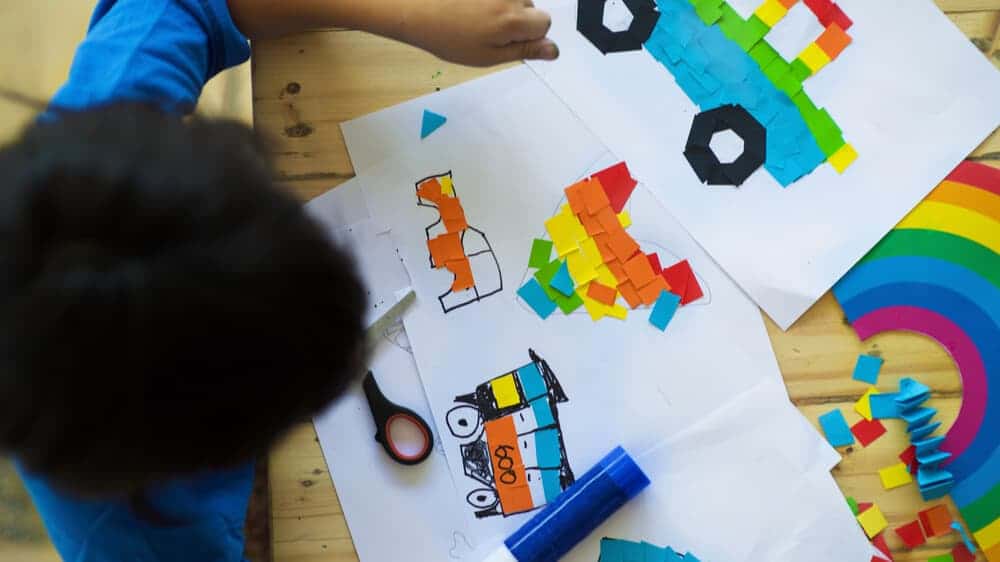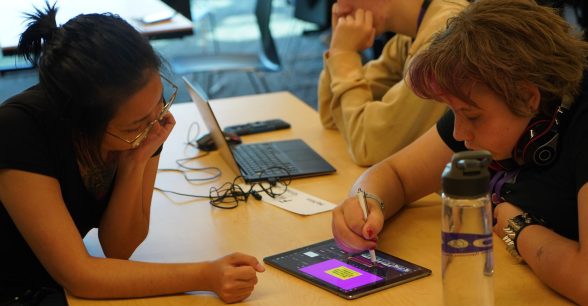How Can Parents and Kids with Disabilities Cope During COVID-19?
The following post is part of our series on perspectives from disabled and chronically ill people regarding COVID-19.
In the age before the internet when many Autistic girls were misdiagnosed, my mother used to say, “Amy is like any other child, only more so.” As I have grown up, become a school psychologist, and also had my own Autistic children, I have found my mother’s words to be very wise because they emphasize that I am a person just like anybody else…only different in some ways, like we all are.
When it comes to a crisis like the COVID-19 pandemic, I, too, need food. I, too, need to feel safe. I, too, need to feel loved. I, too, need my boundaries respected, and I, too, need the opportunity to continue growing as a person. But as an Autistic person, the dietary needs and restrictions of others are not always the same as my dietary needs and restrictions. The things that make others feel safe don’t always make me feel safe. The things that make others feel loved don’t always make me feel loved. The personal boundaries that I need others to respect are not always the same personal boundaries that others need respected. The way that I continue to grow as a person is not always in the same way, or on the same schedule, as that of others.
With recent school closures and the loss of support services, many parents of children with disabilities are extremely worried. They are worried about finding foods their children with dietary restrictions can eat. They are worried about finding enough medically necessary items for their child’s daily needs. They are worried about keeping their children safe. They are worried about the loss of physical and emotional support. They are worried about what will happen if they or their children get sick.
And in addition to that, parents have their own needs as well. They need to be able to sleep without worry that their child will get hurt. They need to be able to quarantine without worrying about running out of money for necessities. They need the time to take care of their own physical and mental health needs while caring for others. They need the time to be individuals and not just caregivers.
So, what do we do about this? First, we need to work on releasing the panic, worry, and guilt. Stress doesn’t help anyone, and it can actually tank your immune functioning. It can also increase your child’s state of emotional stress. You might try paying special attention to the little sensory inputs that we usually ignore. Think about your own sensory needs the way you usually think about your child’s sensory needs. How can you bring peace and calm to your body through sensory input? Notice how you are feeling and take steps to meet those needs.
As for our children, they take in the small behaviors of those around them. And they also tend to communicate through their behavior. The changes to their routine and in the behavior of the adults around them can cause a great deal of stress. Children’s behavior can also change as they are trying to communicate to you how they are feeling. We have to learn to “listen” by observing, and we have to learn to meet our children where they’re at.
How can you do this? Create an environment that gives everyone in your home space to be who they need to be in this moment. Maybe that means your child is spending long hours stimming, acquiring sensory inputs, or avoiding all demands, and that is okay. Make sure that you express love to your child in a way that they perceive as loving. Some kids need hugs. Some kids need you to spend more time talking with them about their special interest. Some kids need you to watch their favorite show with them or to just be in the room with them.
In times of stress, and always, what we need more than anything is to be seen as people and to have our basic physical and emotional needs met.
About Rooted In Rights
Rooted in Rights exists to amplify the perspectives of the disability community. Blog posts and storyteller videos that we publish and content we re-share on social media do not necessarily reflect the opinions or values of Rooted in Rights nor indicate an endorsement of a program or service by Rooted in Rights. We respect and aim to reflect the diversity of opinions and experiences of the disability community. Rooted in Rights seeks to highlight discussions, not direct them. Learn more about Rooted In Rights



